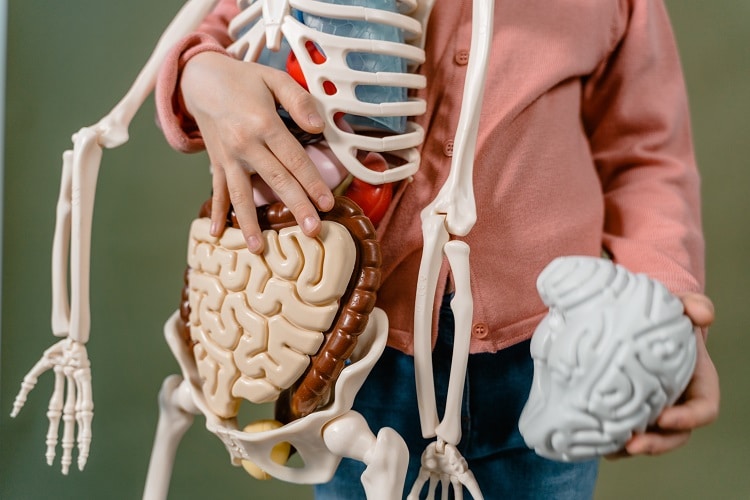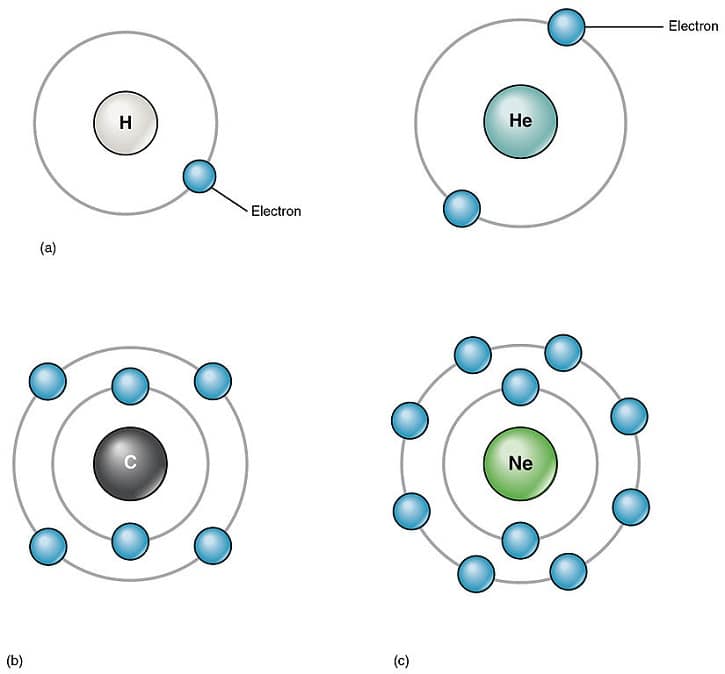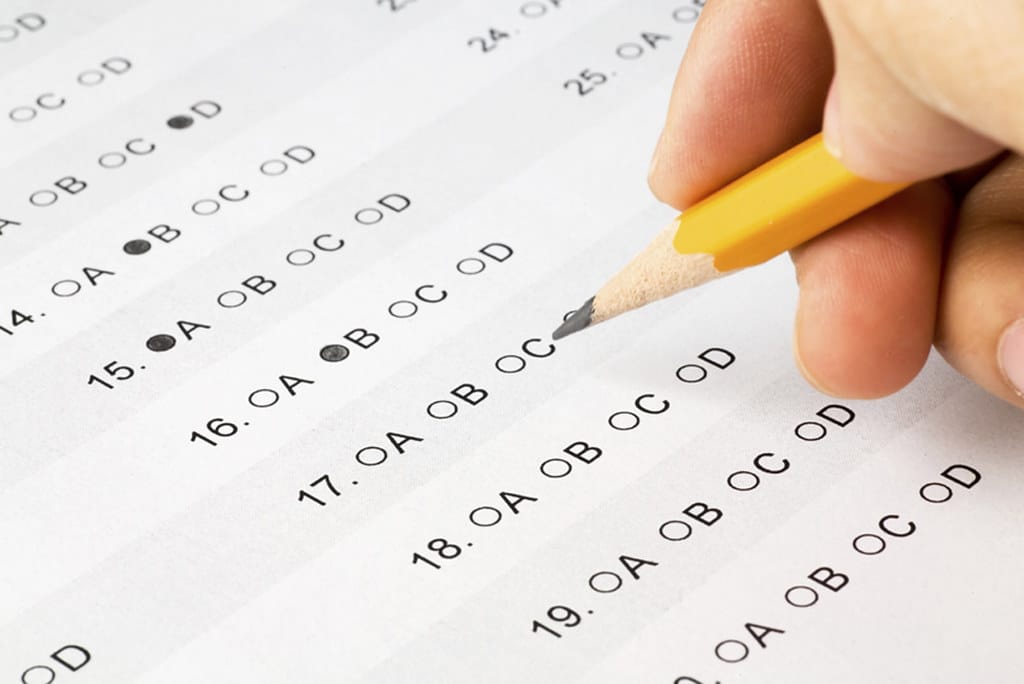
What is the TEAS Science Test For Nursing?
The Test of Essential Academic Skills, or TEAS, is a test that assesses the knowledge and comprehension skills of a student prior to entry into a nursing school or health-related program. The TEAS will ascertain whether that student has the capabilities necessary to complete such a program.
ATI, Assessment technologies Inc., is the company that formulates and supplies the TEAS tests.
Unsurprisingly, a nursing training program can be complex and will require a certain level of cognitive ability as well as commitment and dedication. Therefore, it is essential to make sure that the student is ready and able for such a commitment.
The TEAS will enable students to understand where their strengths and weaknesses lie in the relevant topics and also their level of preparedness in regard to remembering and understanding previously learned subject matter.
For many test takers, the ATI Nursing Science Test can be one of the hardest sections due to it being the largest of the topic areas, covering a lot of material. Passing this section of the test will require patience and perseverance, and preparation.
Table of Contents
What is the Format of the TEAS Test?
There are four sections to the TEAS exam:
1. Reading
This section contains 53 questions with a time limit of 64 minutes. The pass rate for the reading test is 75%, although certain schools may have specific pass rates for their programs. It is a good idea to check in order to know what your target is.
The questions in the reading test are broken down as follows:
– Key Ideas and Details
15 questions – comprising topic, main idea and supporting details, summaries, following directions and sequences, finding information in printed communications and graphs, and finding information in a text.
– Craft and Structure
9 questions – comprising author’s opinion and bias, author’s point of view and purpose, context clues, figurative language, and text features.
– Integration of Knowledge and Ideas
15 questions – comprising working with sources, logical conclusions, inferences, and predictions, evaluating and integrating sources, evaluating arguments, and comparing themes.
The main challenge of the reading part of the TEAS test can often be the time pressure of this section, particularly as the test includes working with long passages and logical conclusions.
Therefore, preparation and planning can really help to alleviate those pressures. Being able to find an answer quickly in a long passage of text without becoming overwhelmed will be a vital component of your success.
Being able to skim a text to find specific words will save you time and energy. The ability to retrieve information from different sources such as charts and graphs will also stand you in good stead.
2. Mathematics
This section contains around 36 questions with a time limit of 54 minutes. The pass rate for the test is usually around 70%. The sections include:
– Numbers and Algebra
18 questions – comprising operations with numbers and fractions, rational numbers, word problems, algebra with one variable, and percentages.
– Measurement and Data
16 questions – data, statistics and variables, geometric measurements, conversions, the metric system and charts, graphs, and tables.
For the mathematics section, you’ll need to be able to work with word problems and be familiar with formulas such as mean and percentage increase.
Regular practice of your math skills and quick recall of operations will be essential here. There may also be questions on converting decimals and fractions, algebra, and how to calculate perimeter and area.
Knowing the order of operations to solve math problems will be an important component of your success – (PEMDAS – parentheses, exponents and roots, multiplication, division, addition, and subtraction)
3. English and Language Usage
Here there are 28 questions with a time limit of 28 minutes.
4. Science
This section contains 53 questions and takes 63 minutes to complete. It is the most significant section of the test and often considered to be the hardest.
What Does the TEAS Science Test Entail?
Within the Science section of the test, there are three subsections, as well as six additional pre-test items:
Human Anatomy & Physiology
This forms 68% of the science section and, as such, is the weightiest part of the test. There are 32 questions within this section.
With this being the most significant portion of the test, it is advisable to focus much of your effort on preparing for the human anatomy and physiology questions as many of them will contain complex terminology that you will need to know securely, prior to the exam.
At the very least, you should be able to eliminate the wrong answers from the options given in order to have an educated ‘best guess’ at the correct option.
The key areas of knowledge are the ones that you should focus on and these are:
- Cardiovascular System Cells
- Endocrine System
- Gastrointestinal or Digestive System
- Immune System
- Integumentary System
- Muscular System
- Nervous System
- Organ Systems
- Reproductive System
- Respiratory Systems
- Skeletal System
- Tissues
- Urinary System
In order to be well prepared and confident for your Science TEAS test, you should understand each of these key elements of the human body, how they operate and how they work in connection with each other.
Using the resources at Job Test Prep can help you to memorize these key facts so that their retrieval becomes second nature. Some of the strategies that can help with the revision of facts can be the use of diagrams, flashcards, lists and word association.
Life & Physical Sciences
This forms 17% of the science section and contains 8 questions. As with the Anatomy section, there are a few key concepts that you are well advised to revise and commit to memory.
The key concepts within this section are:
- Heredity
- Basic Atomic Structure
- Changes in States of Matter
- Properties of Substances
- Chemical Reactions
Heredity
This is the transfer of genetic makeup from one generation to another. You should be well versed in the concept of heredity, including how the evolution of species can be caused through the exclusions of particular traits over time.
Mendel’s Laws of Heredity outlined the principles of inheritance in the form of three laws. You should be clear on the three laws and what they are.
You should also learn about the four chemicals that deoxyribonucleic acid (DNA) is composed of and also how DNA works, including the role of the nucleus, chromosomes, and the way that DNA can self-replicate.
Make sure that you have a good understanding of the relationship between DNA, chromosomes, and genes and that you also have adequate knowledge of the differences between dominant and recessive genes as well as incomplete dominance and recessive genes.
There could also be questions about macromolecules, in particular how they are often identified as proteins, lipids, carbohydrates, and nucleic acids. It is important that you know the purpose of these with regard to human biology and how they function.
Basic Atomic Structure
With one of the key concepts being that of atomic matter, it is important to make sure that you have a basic understanding of the structure of an atom, its role, and the charge of protons, electrons, and neutrons.
Also, where do all of the particles sit in relation to each other and which of them orbit which? You will also need to be able to identify and recognize the basic atomic structures of a variety of elements using visual representations.
Changes in States of Matter
Questions included in this concept will relate to the different states in which a substance can exist. For example, freezing, melting, boiling, and condensing. You should know the temperatures at which each of these states of matter occurs, why the change happens and how.
Properties of Substances
For questions of this type, it is important that you are able to describe the properties of substances, especially the characteristics of pure compounds and pure elements.
Chemical Reactions
The ability to describe a chemical reaction will include not only what the reaction might be but also how it occurs and the factors that can affect the speed or outcome of that reaction. These factors could include temperature, substance concentration, and pressure, all of which can act as catalysts and significantly speed up a chemical reaction.
Scientific Reasoning
This section has 7 questions and forms 15% of the science part of the overall TEAS test and, as its name suggests, will evaluate your ability to use logic and reasoning to process the given information and arrive at the correct answer or outcome.
There are six steps within the Scientific Method, and you should familiarize yourself with these:
- Identification of a problem
- Proposition of a question
- Development of a hypothesis
- Collection of data
- Analysis of data
- Conclusion
It is important that you are able to scientifically critique all of the six steps, along with the overriding approach to data collection, data investigation, and choice of experiment. Knowing whether the data collected in step one is relevant in order to answer the question in step two is a vital part of scientific inquiry.
You should also understand and be able to identify any coincidental correlations that are not part of the cause and effect relationship. You should also be able to identify the measurement tools that are used currently to record lab data.
Sample Questions for the TEAS Test
Job Test Prep can offer you a range of practice questions to make sure that you are familiar with both the style and content of the test in order to answer confidently and efficiently. However, it will still be important for you to revise your general knowledge of the topics contained within the test.
Questions are presented in a multiple choice format under timed conditions. Sample questions could include:
Which of the following does not affect the binding affinity of oxygen to hemoglobin?
- The levels of hemoglobin within the erythrocyte cells
- The allosteric regulation of hemoglobin
- The pH level
- The partial pressure of oxygen
Which is formed in the process of cellular respiration?
- H20
- CO2
- ATP
- All of the above
Which of the following diseases is caused by vitamin C deficiency?
- Rickets
- Beriberi
- Scurvy
- Anemia
(In this instance, the correct answer is C. Scurvy was particularly prevalent amongst sailors whose diets lacked the presence of fresh fruit and vegetables, all of which are an excellent source of vitamin C)
How Can I Pass my TEAS Test?
All exams can be stressful, and this is made especially so when the development of your career potentially rests on the results you achieve. However, there are lots of ways in which you can reduce the pressure and make sure that you are adequately prepared.
Have a Plan
One of the biggest factors in being unsuccessful in any test is the absence of a plan on the part of the test taker. Making a plan leading up to the test can be a great way to focus your efforts and of making sure that you don’t overlook any important preparations.
Make sure you know how long you have to prepare and identify the areas about which you are most concerned – what are the major challenges that youface?
Prepare a study area that suits your life and work style, and think about any other things that you have to prepare in addition to your test practice. Knowing how long you have to do everything is a great way to make sure that you are able to deal with any unexpected tasks or requirements.
Having a plan will also ensure that you are better able to reduce your stress and anxiety levels and therefore preserve your physical and mental health.
Don’t Leave Things to the Last Minute
If you have constructed a plan, you will have gone some way to ensure that you are not tempted to cram your studies just before the test. The ATI test providers advise that students allow at least six weeks in which to prepare for their TEAS.
If you don’t quite have this amount of time, then it is still possible to achieve your desired outcome within a two-week period, but it is still advisable to space your study sessions out rather than being in a situation where you are forced to cram as this can lead to burn out and of course, insufficient knowledge to pass your test.
Some students will work better in the early morning, while others may be more of a night owl. There are no hard and fast rules. Your study program will be unique to you and your existing responsibilities and commitments.
Practice Test
Arguably the best way to make sure you enter your test with real confidence is to do some practice tests beforehand. Job Test Prep can help you by providing a range of comprehensive tests to make sure that you are adequately prepared.
Of course, you won’t be able to see the questions that you will face on the day. But you will develop a sound understanding of the types of test questions and the test format.
It is crucial that you take the practice test under timed exam conditions, especially as this is such a large part of the test delivery. It is no good being able to answer all of the questions correctly if it has, in fact, taken you twice the time that you will have on the day!
Taking more than one practice test will allow you to assess the possible gaps in your knowledge and the types of questions that caused you the most problems. In this way, you will be able to review your score, identify and address your areas of weakness and thus improve your performance.
Trust Your Instincts
In high-pressure situations, we can have a tendency to overthink our decisions and sometimes talk ourselves out of the correct answer. Try to have faith in the learning that you have already done and the knowledge that you have acquired up to this point.
Answer the question in your head before looking at the multiple-choice answers. This should give you an idea of what the answer should be.
Even if the answer that you thought of isn’t there, you should still be able to narrow down the options based on your initial thoughts. This strategy may also help to save you time when answering trickier questions.
Don’t let yourself be tripped up on the wording of questions using double negatives or words such as like, always, none, and never for the true and false style of questions.
It is often the case that an extreme style of answer means the question is likely to be false, whereas descriptive answers are more likely to be true.
Answer All Questions
The truth is that you cannot score any points for unanswered questions. Considering that you will not be penalized for wrong answers, then it makes sense to ensure that you answer every single question.
It does not make sense to ponder for too long over each question if that means that you are going to run out of time at the end of the exam; for some questions, you may simply have to enter your best guess if you are unsure.
You can also have a look at our similar study guides on career at NHS, how to prepare for NHS test.
Summary
The TEAS Practice test is certainly not the simplest test you are likely to take, but with careful preparation and practice, you will be able to increase your knowledge and your confidence, both of which will give you the best possible chance to ace the test and pursue your ideal career.
Job test Prep is committed to providing comprehensive resources to help you do this, formulated through years of careful research and experience, taking real pride in being a part of your success!
Written by Karen Stanley
Karen is a former teacher of 20 years and ten times published author. She writes content for educational organisations and businesses, nationally and internationally. She coaches new and budding writers through to publication and is passionate about creativity; she runs creative writing workshops in schools and fostering agencies.
Sarah is an accomplished educator, researcher and author in the field of testing and assessment. She has worked with various educational institutions and organisations to develop innovative evaluation methods and enhance student learning. Sarah has published numerous articles and books on assessment and learning. Her passion for promoting equity and fairness in the education system fuels her commitment to sharing insights and best practices with educators and policymakers around the world.









